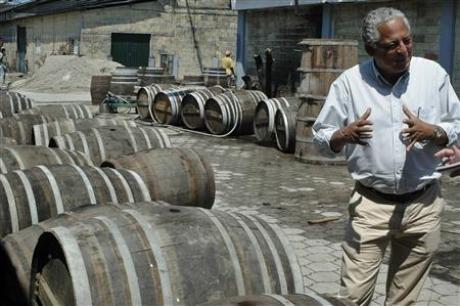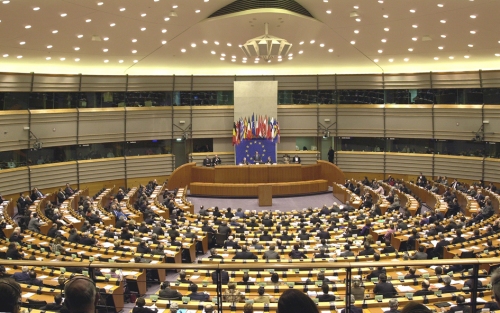
The Caribbean rum industry is being abandoned left, right and centre with no Caribbean government yet rising to the challenge thrown down by the European Commission (EC) as it reneges on commitments given to Caribbean rum producers.
Since my commentary a week ago warning of the dire straits into which Caribbean rum has been thrown by the EC, the West Indies Rum and Spirits Producers Association (WIRSPA) has been told formally that the European Union (EU) funds under which its members benefited will definitely be cut-off on June 30. Further, the EC says that monies due on June 30 will be paid only if the wrap-up period from July to September is funded by WIRSPA.
The Caribbean rum industry will suffer unless there is swift and vigorous work by Caribbean governments. It might suffer even if the Caribbean governments do move swiftly, for the EC could choose to ignore them. But, it would be a sad day for the region if its iconic rum industry is dashed on the rocks of the EC’s disregard while Caribbean governments simply watch on.
The EC has completely ignored two reasonable requests made by WIRSPA The first was to extend the deadline for funds being paid under the 8th European Development Fund (EDF) until the end of 2011; and the second was for a study of the impact on Caribbean rum of the premature liberalisation of the EU market to Latin American countries. In informing WISRPA of the June 30 cut-off date, the EC did not even mention the requests.
In the result, Caribbean rum producers, who have borrowed money on the strength of EU pledges to upgrade their production facilities or undertake marketing projects, are left to carry the debt. Yet, of the original 70 million Euros that the EC had pledged to this programme, there is still approximately 14 million Euros unspent.
Poignantly, the country that will be hardest hit by this EC reversal is Haiti. Its rum producer, Barbancourt, which was devastated by last January’s earthquake, will now have no chance of getting assistance for its recovery from this programme. It will also find it well nigh impossible to regain a place in the EU market by the time it is able to limp back into any semblance of export production.
 Barbancourt Rum Factory in Haiti
Barbancourt Rum Factory in Haiti
The EC has told both WIRSPA and Caribbean government representatives that a European Council regulation prohibits them from extending the fund for the 18-month period the rum producers need. They have insisted on relying on this regulation even though their own Programme Monitors have strongly recommended the extension – the ‘regulation’ notwithstanding
They have also repeatedly told WIRSPA that it should look to the EDF’s 10th Regional Programme for the money the Rum Producers need, and should ask the governments of CARIFORUM for an allocation under this programme.
But, this proposal of trying to get funds under the 10th EDF is a complete red herring, bordering on being disingenuous.
The EC conveniently forgets that the rum programme was the result of a political deal struck at the end of the negotiations of the Cotonou Treaty (the formal agreement on EU relations with African, Caribbean and Pacific (ACP) countries). The outline sum agreed at that time (100 million Euros) was to facilitate a finite transition process in the context of a trade agreement and was not a development programme.
In 2000, the specific sum of 70 million Euros was agreed and only then inserted into the regional programme using unallocated EDF funds. This was solely for the use of rum and for a programme to be delivered by WIRSPA. It was a key part of the political agreement to end the Cotonou negotiations and to facilitate the industry’s survival in the light of the fact that, three years earlier, its markets were liberalised without reference to the Caribbean.
The Commission is, in effect, reneging on a political deal with the Caribbean. And, the Caribbean governments with which that deal was made should be as passionately angry about it as WIRSPA.
According to sources in Brussels, on March 24, WIRSPA wrote to the European Commissioner for Trade, Karel DeGucht, repeating the request for access to the unspent and allocated funds for rum in the 8th EDF and expressing dismay at the dropping of the declaration on rum in the mid-term review of the Cotonou Treaty on March 19. The letter, which is circulating among ACP circles in Brussels, also pointed out that, in the deals the EC has done and is continuing to do with Latin American countries, two things will happen.
First, on low cost and heavy bulk rum, there is a strong risk that European importers will switch to using lower cost suppliers in Central or South America and immediately make full use of any tariff free quotas which are granted. The loss of such major contracts would prove devastating to Caribbean suppliers of bulk rum in Barbados, Guyana, Jamaica and Trinidad and Tobago. And, second, on bottled rum, Central and South American producers will be able to use the reduction in the tariff to further undercut ACP products in the EU market.
All of the CARIFORUM countries, except for St Vincent, will be affected by the closure of the Rum programme by the EC, even with the "extension" to June 30. All will lose the opportunity for continuation of their individual marketing campaigns which the EC is also cutting off on June18.
The protection for rum was vested in the Cotonou Treaty. Why was it not preserved in the revision of the Treaty a few weeks ago, when ACP countries sat with the EC? This is a question that remains to be answered.
Meanwhile, Caribbean rum urgently needs a champion if the region is not to lose the vital foreign exchange that the industry earns and the jobs it provides. That champion can only be the
Governments of the region who stand to lose as much as the industry itself. The government of the Dominican Republic has undertaken to raise the issue with Spain, but one government is not enough.
 European Parlimanent in session
European Parlimanent in session
In my last commentary, I had suggested that a high-level government team should be dispatched to European Capitals to champion this cause with European governments, non-governmental organisations, and, though the media, with the European people. To that list I add the recent suggestion of Patrick Chatenay, a strategy consultant to the sugar and ethanol industry, who wrote to me that an “effective way to counter the Commission's trade approach is through the European Parliament. Indeed, the Treaty of Lisbon gives it the power to block international commercial agreements negotiated by the Commission, and it has not been shy in using those powers”.
Caribbean governments too have an obligation to act boldly and to do so now. Caribbean sugar,
Caribbean bananas, now Caribbean rum; soon there will be nothing left but the words.